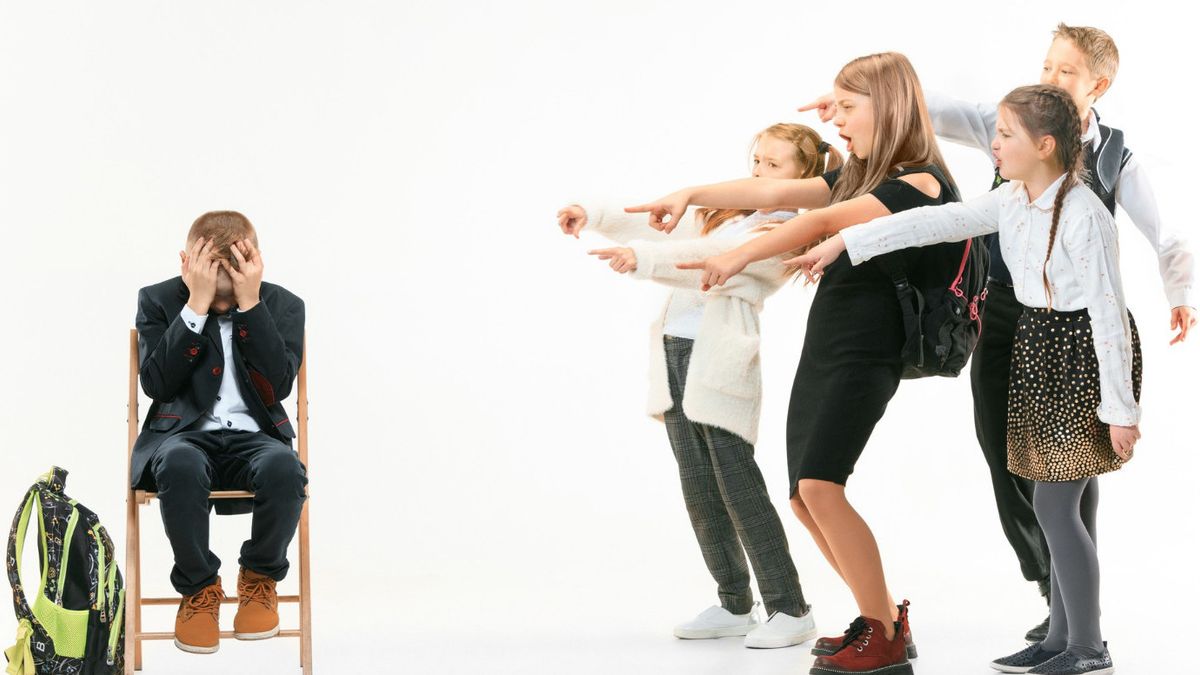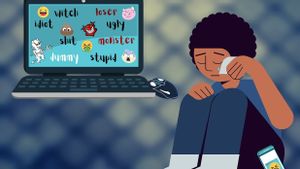YOGYAKARTA Many people assume children who bully are naughty children. But sometimes those who bully want to adapt to a group of other children who intimidate, explained Jamie Howard, Ph.D., director of the program Stress and Resilience Program at the Child Mind Institute. Children who need attention and be assertive can also commit violence to their peers. That's because they all don't understand how his actions and words have an impact on other children.
If as a parent hears their child being a bully, it's important to start opening the conversation. Be open but straightforward. Give your child room to explain what happened and how he felt about it. If it's still unclear where this bullying behavior comes from, mental health experts can help find out. Here's what parents need to do when their child becomes the bully.
If you hear a teacher or another parent reporting your child bullying, the first thing to do is talk to your child about the situation. Be straightforward about the problem, but explain that you are open to listening to stories from your child's side. For example, saying 'I got a call from school today, and the teacher indicated that you were involved in the oppression. I am very concerned about this, and we need to talk about it. Please tell me what happened'.
Talking about the situation with your child can help you understand why aggression is taking place. Children who bully may not be able to explain why they are acting. Especially in children and those who struggle with anxiety, trauma, or other mental health problems. If it is difficult to understand the cause of your child's bad behavior, consider consulting a child psychologist or psychiatrist who has a lot of experience in evaluating your child's behavior.
After investigating the root of the problem by opening the conversation and listening from the child side the bully, adjust the response to the challenges that children face. Discuss scenarios that may be difficult to handle. Their bimbing goes through the right response.
Have many different solutions to various problems that may arise, and set a clear example of how you expect your child to respond. Frame the situation as a friend rather than giving a ban. Because children will respond better when told what to do than what not to do," explains Dr. Howard.
Taking a different point of view is another way to deal with it. Ask your child, how to feel sad and left out for someone who is bullying.
It is important to understand that children who experience aggressive or ill-interaction at home will most likely repeat these behaviors at school. So it is important for parents to consider how to behave with their children. The message of clinical psychologist Kristin Carothers, Ph.D., is important to start building a positive home environment where family members treat each other well and respectfully.
Punishment for bullying actors is indeed effective, but it must be meaningful and the coverage is limited. For example, if a child bullys on social media or other online interactions, take over the right to access a device and use the internet. In the case of a very serious violation, revoke these privileges in the future, and seek the help of a therapist.
If you delete the privilege of accessing gadgets and the internet for too long, that right may lose its validity. Make sure the consequences have a period of time until those penalties have a major effect." said Dr. Carothers.
When giving consequences or 'punishment', explain that they make mistakes that need to be corrected. Improvements can be made in various forms, such as apologies or others.
If there are other parents who report to you about bullying, immediately notify their teachers. Ask the teacher to be aware of problematic behavior. Follow up with the teacher regularly and give a lot of praise when your child becomes a good friend. If children bully via the internet, check regularly to make sure they use social media in a good way. Be open to this and tell your child that you are monitoring all their activities on the internet and they must be responsible for what they do.
If a child does bullying behavior, build a friendship with him. Evaluate in a future. If his behavior does not change, do a mental health evaluation and seek the help of the therapist to overcome the underlying problems.
SEE ALSO:
In some ways, the action that can be taken is to build open communication with your child. Communicate about daily life so that it is better to recognize signs of bullying.
Carothers recommend asking some open questions to your child every day. For example, ask about today's activity plans, ask your kids to tell you what they've done and what they like or don't like.
In essence, to prevent children from bullying, parents must be present in their children's lives. Children must get enough love, attention from their parents, and feel heard about what happened to them.
The English, Chinese, Japanese, Arabic, and French versions are automatically generated by the AI. So there may still be inaccuracies in translating, please always see Indonesian as our main language. (system supported by DigitalSiber.id)


















